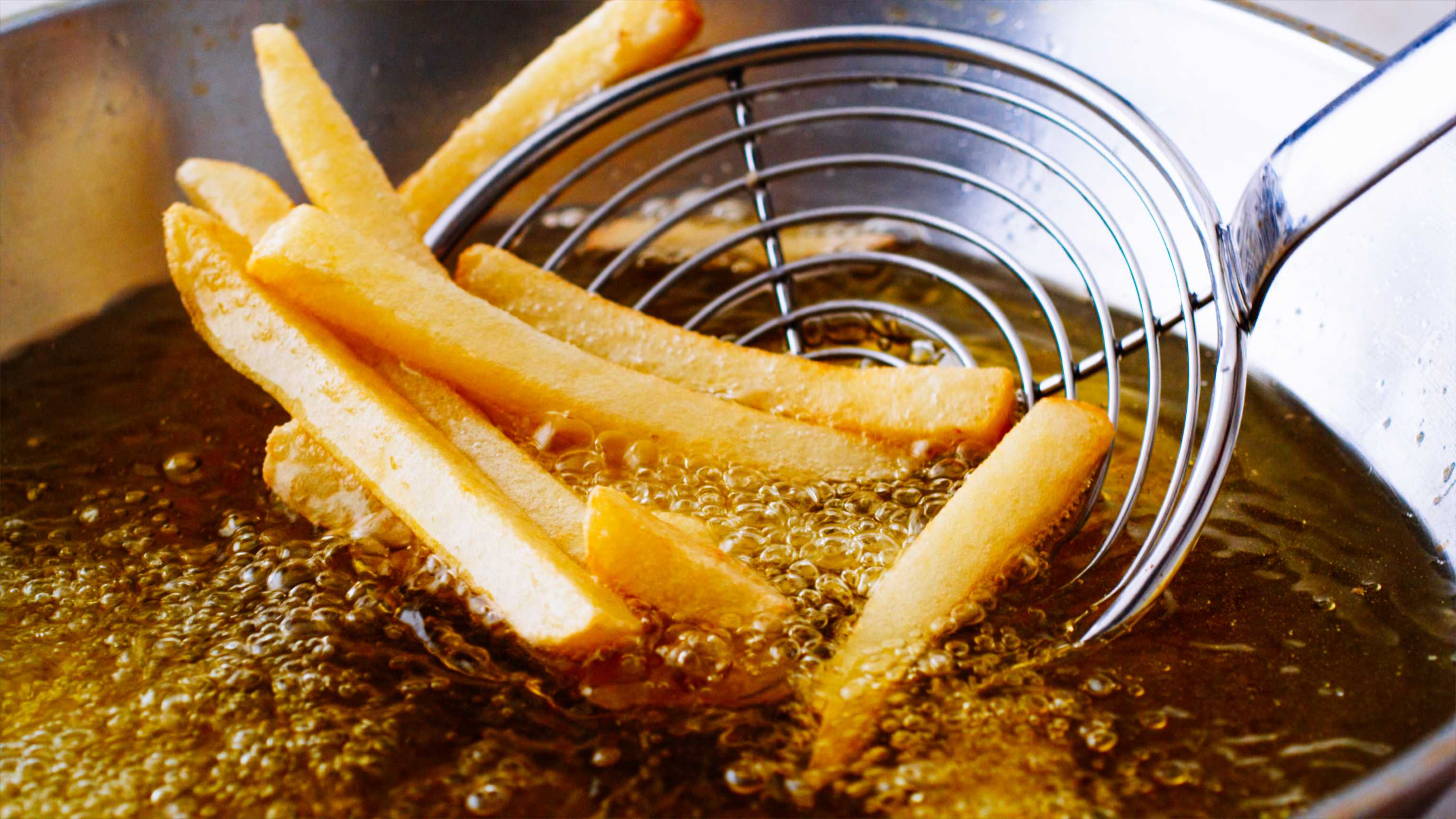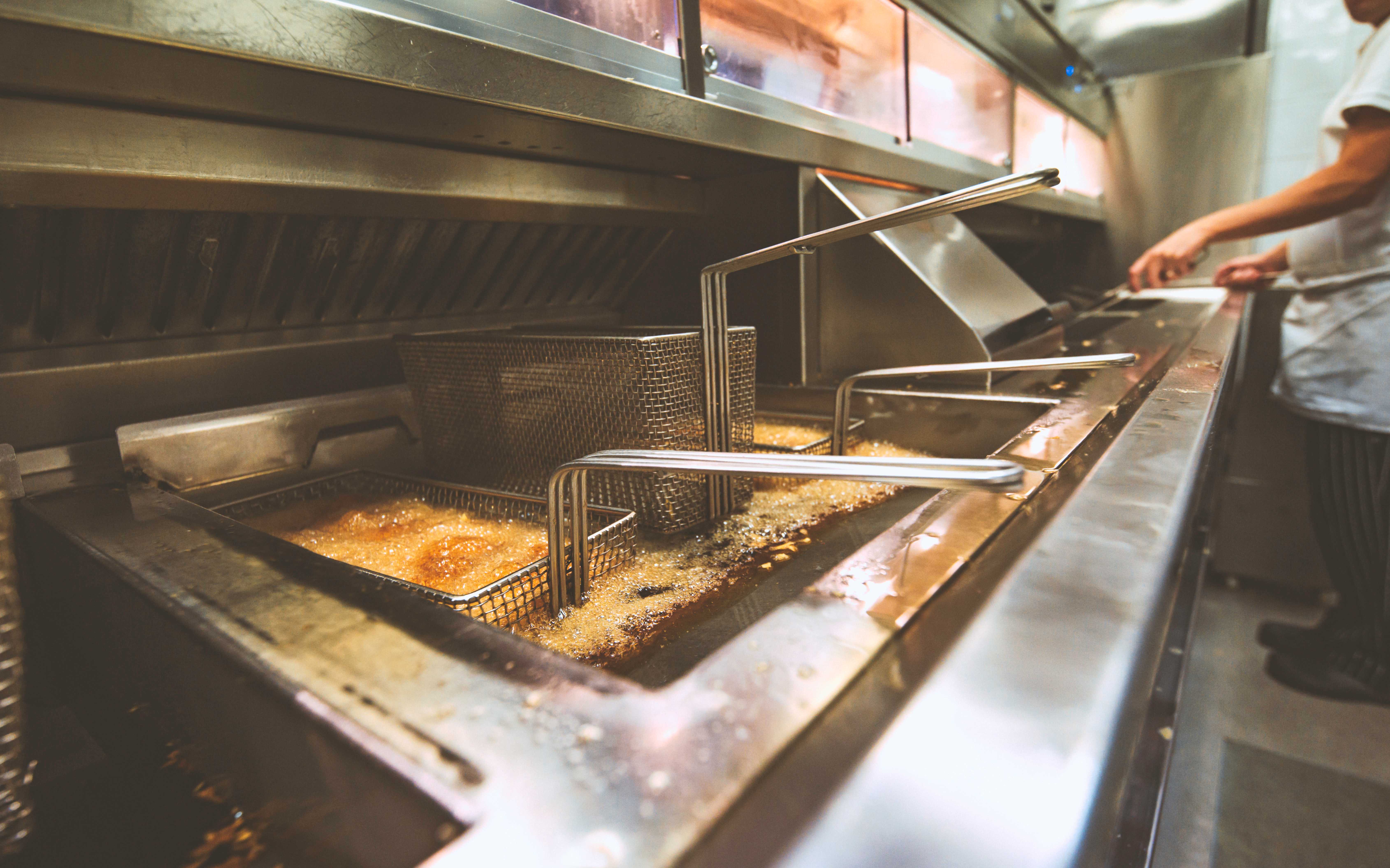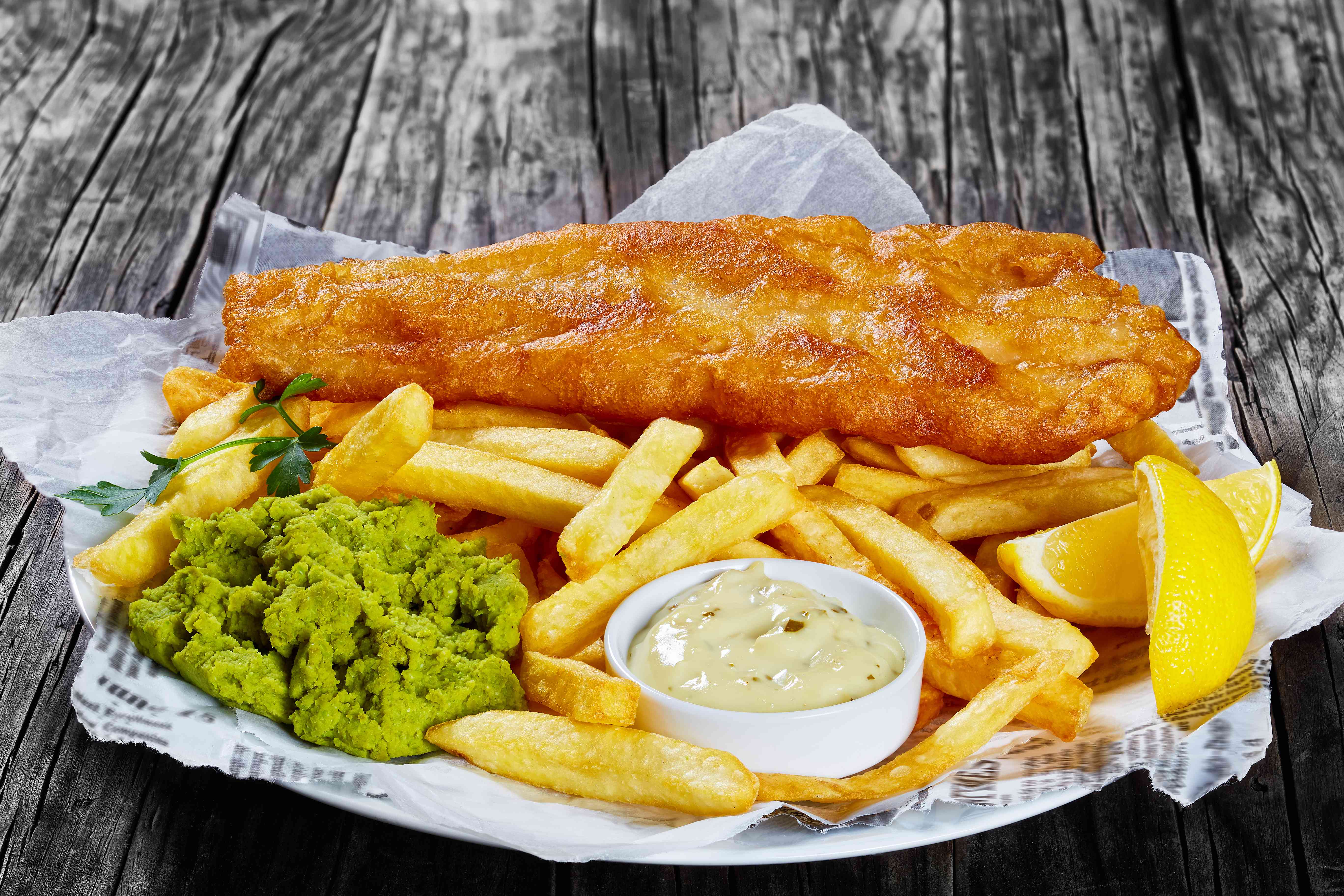One of the most common questions from fellow fryers in January and February concerns the deterioration of their frying medium. I would normally advise that this is due to a combination of increased starch and sugar levels in potatoes and a lower level of business.
Starch/sugar levels
A potato normally consists of 80% water, although this may vary depending on the type of potato you are using. The rest is made up of starch and a small amount of sugars. Excess starch is a major cause of oil deterioration, particularly during the winter months. The higher the sugar, the darker the chip becomes and the faster the oil deteriorates. The more information that is known about the potato tuber and the best means of taking care of it, the better the likelihood of an extension of the life of the oil and an improved final product.
Correct storage
A potato naturally produces starch to keep itself warm. The starch will convert to sugars when stored below 10ºC and particularly so when stored below 6 ºC. Consequently, it is best not to store potatoes in a cold room or against an outside wall.
Removal of starch
Starch must be thoroughly washed off the chips in order to preserve the frying medium and maintain the quality of your cooked chips. Chipped potatoes should be washed . twice before using Starch Doctor or All Seasons. Warm water can help to reduce the starch and sugar levels because it will draw the sugars out of the potatoes.
Lower levels of trade
It is much easier to be an outstanding fish fryer when trade is brisk. The constant flow of business keeps ingredients fresh and the oil is being regularly topped up and refreshed. Hot oil standing idle deteriorates as the absence of a ‘steam blanket’ allows increased oxygen to enter the pans and degrade the oil.
'Little and often'
When preparing potatoes during these quieter months it is better to use the ‘little and often’ technique. This will enable you to keep your potatoes fresh and not stored in water for unnecessary, lengthy periods of time.
My Top 10 chipping tips to help prevent oil deterioration
- Use Diastix to learn the sugar content of the potato, which will then advise you of the chips frying colour. To produce consistent golden coloured chips the potatoes should contain no more than 0.25% sugar.
- Prepare your potatoes using the “little and often” technique, which can reduce the amount of water within the potato.
- Wash the chips twice before treating with Drywite.
- Use the correct dosage of Drywite, Starch Doctor or All Seasons as per the supplier’s instructions.
- When using Starch Doctor or All Seasons to reduce the starch levels, use warm water as this will help to draw excess sugars and starch levels from the chips.
- Allow the chips to “Air – Dry” for at least an hour prior to frying. Cold room temperatures increase the drying time of the chip.
- Don’t overload pans when frying chips; this will reduce the frying temperature, resulting in a sub-standard chip.
- Regularly check your frying temperatures to ensure the probes in the pans are reading correctly.
- Sieve your pans after each fry which will assist you in reducing the carbon content and prolong the life of your frying medium.
- Use a reputable frying medium, one that is capable of producing deliciously tasty fish and chips consistently, whether trade is sporadic or frantic.
The annual Jan /Feb reduction in trade can come as a “shock to the system” and catches so many of us out. For some, the quieter trade can result in:
- Hot oil standing idle causing deterioration
- Carrying excess raw materials into the next day
The best practice is to use the “little and often” technique to continue being an outstanding fish fryer constantly achieving a cooked product that is fresh and tasty regardless of the time of year… and extending the life of your oil. Get in touch with the Frymax team today to find out more.






